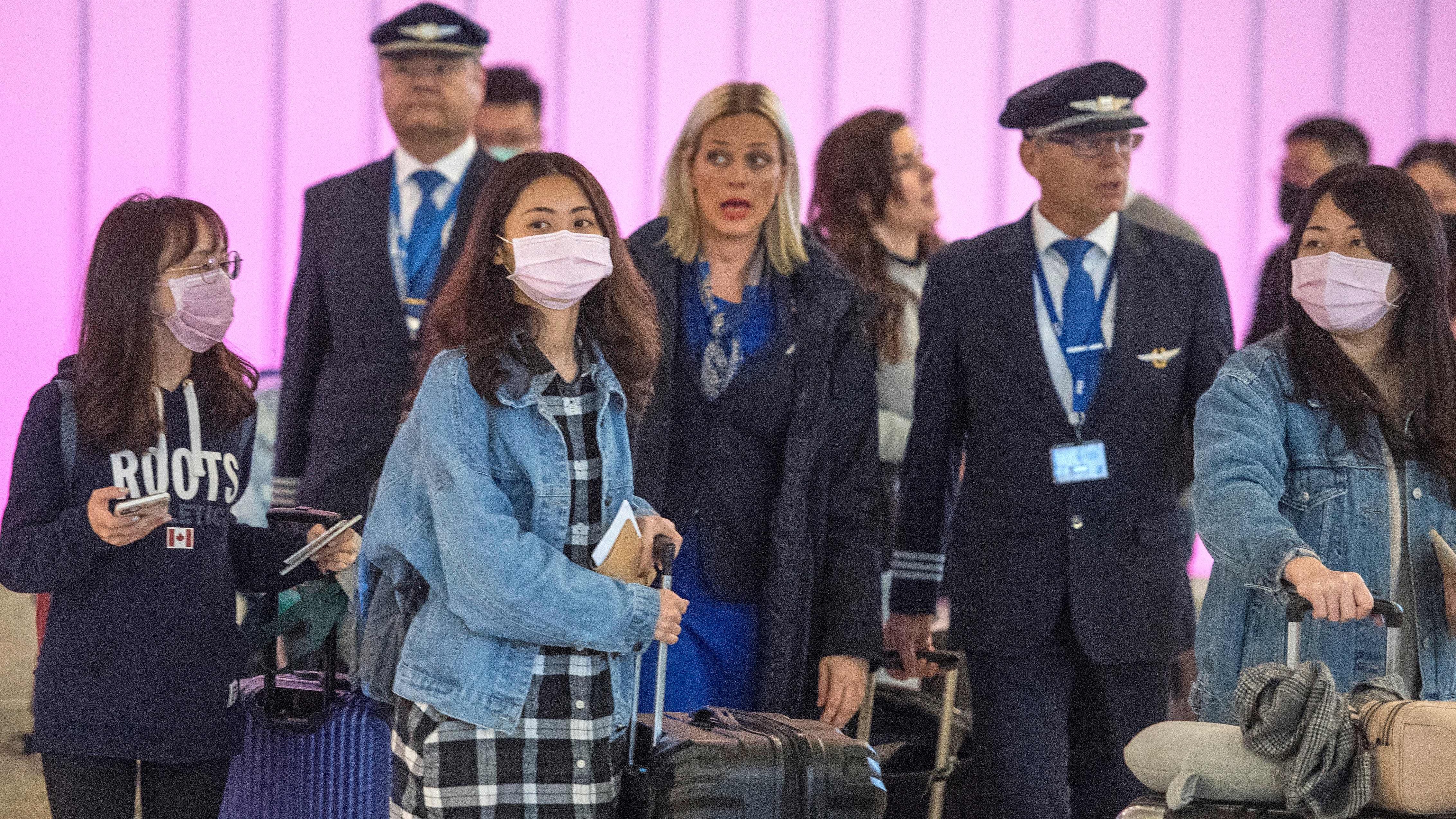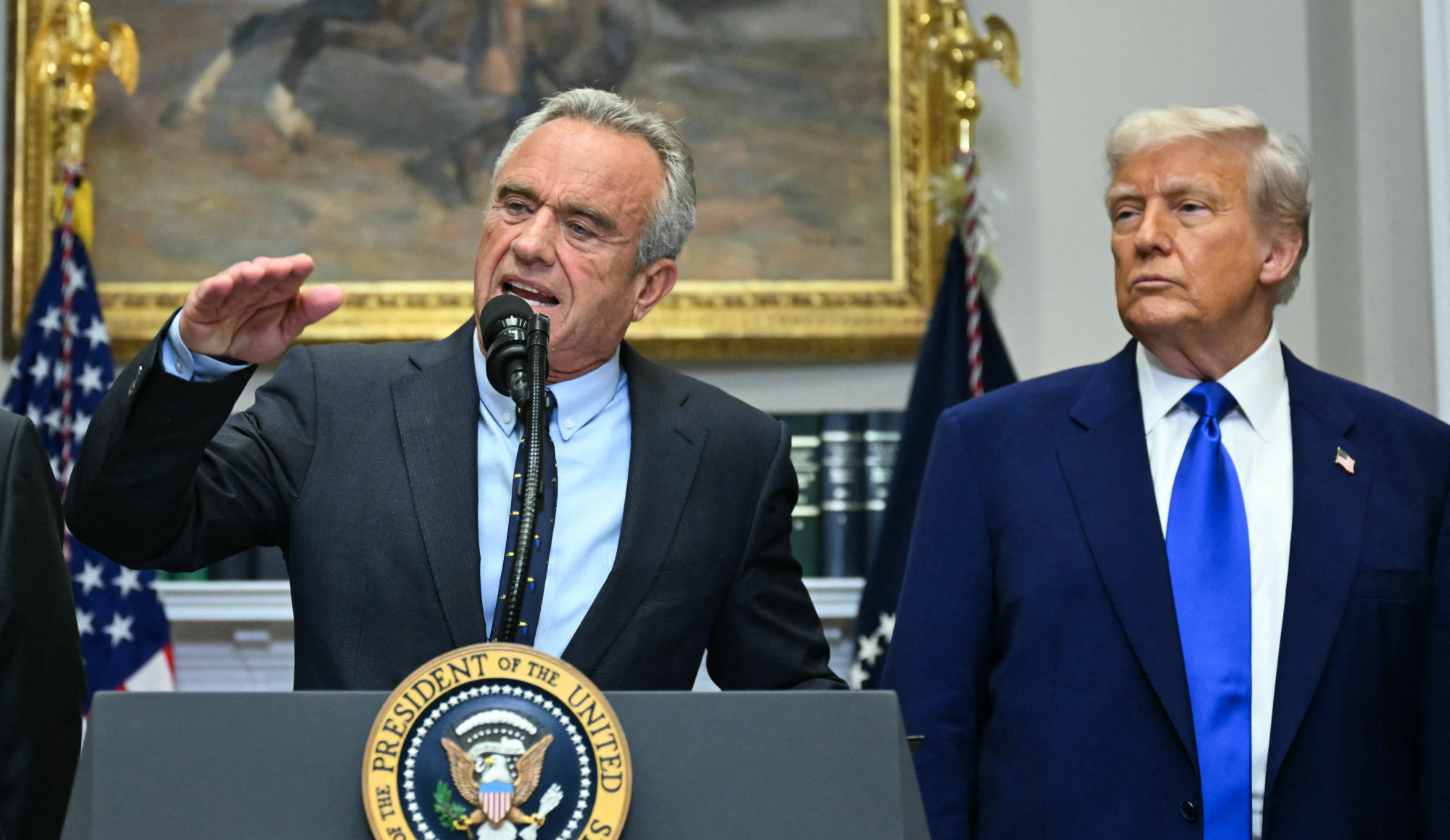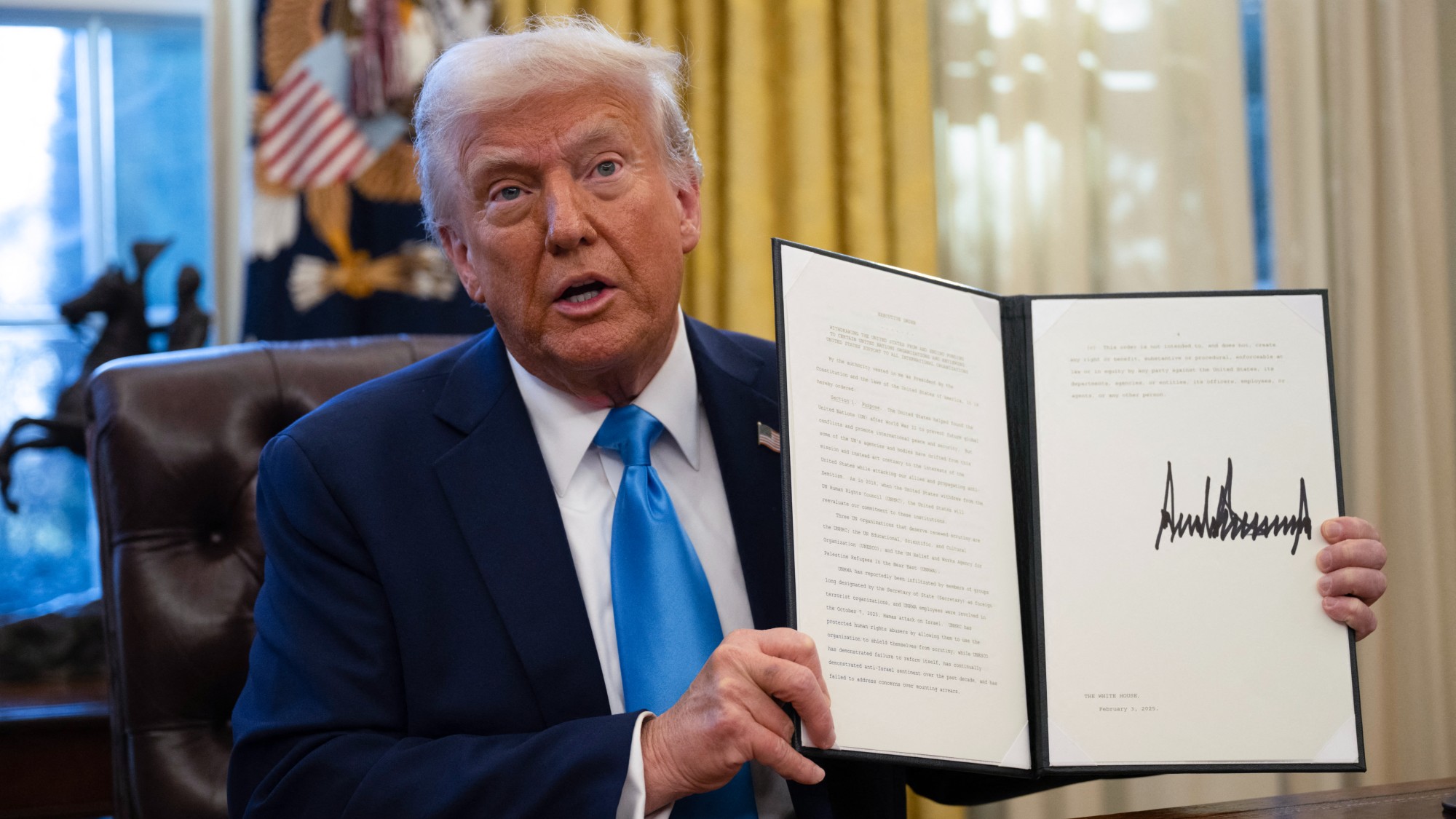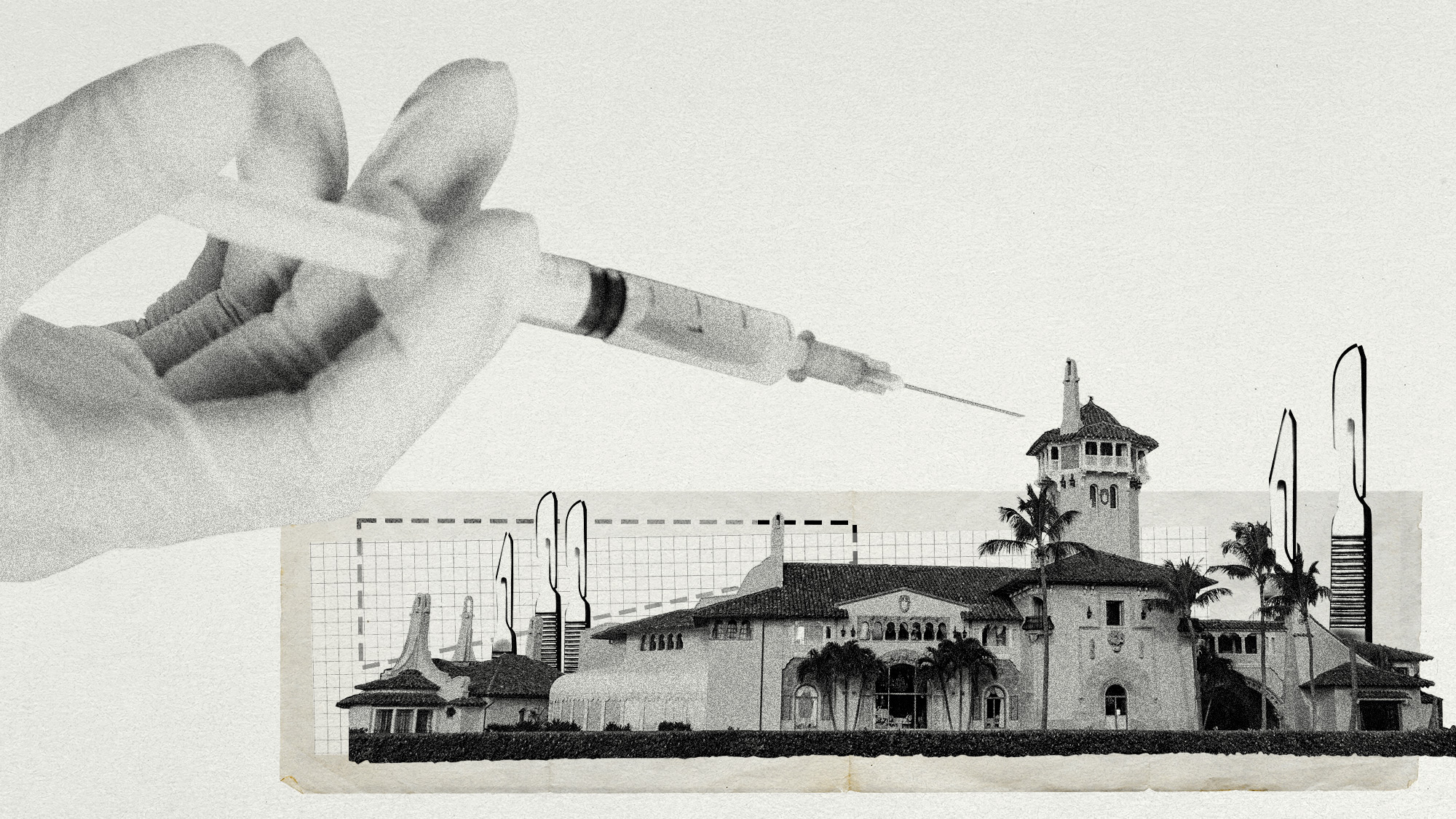US whistleblower claims health workers not given coronavirus protection
Officials met evacuees from Wuhan without proper training or equipment

A free daily email with the biggest news stories of the day – and the best features from TheWeek.com
You are now subscribed
Your newsletter sign-up was successful
A US Department of Health whistleblower has claimed the first workers to receive American citizens evacuated from China lacked proper training or protective gear for coronavirus infection control.
The whistleblower, a senior official at the Department of Health and Human Services (HHS) based in Washington, is seeking federal protection after making the claims.
“This matter concerns HHS’s response to the coronavirus, and its failure to protect its employees and potentially the public,” Ari Wilkenfeld, a lawyer for the whistleblower, told CNN.
The Week
Escape your echo chamber. Get the facts behind the news, plus analysis from multiple perspectives.

Sign up for The Week's Free Newsletters
From our morning news briefing to a weekly Good News Newsletter, get the best of The Week delivered directly to your inbox.
From our morning news briefing to a weekly Good News Newsletter, get the best of The Week delivered directly to your inbox.
“The retaliatory efforts to intimidate and silence our client must be opposed.”
What has the whistleblower claimed?
HHS officials were allegedly sent to help US citizens returning from Wuhan – the centre of the coronavirus outbreak – without being provided with training on how to deal with infected people, or given protective equipment.
Documents say the HHS staff were “improperly deployed” and were “not properly trained or equipped to operate in a public health emergency situation”.
A free daily email with the biggest news stories of the day – and the best features from TheWeek.com
The complaint alleges that workers were exposed to the virus because appropriate steps were not taken to protect them, even though they had face-to-face contact with those returning from China.
The health workers came into contact with returning passengers in the aircraft hangar where evacuees were received in the US, and on two other occasions – when distributing keys and when handing out coloured ribbons for identification purposes.
In some cases, teams from the Centers for Disease Control and Prevention worked alongside HHS personnel wearing “full gown, gloves and hazmat attire”, the complaint says.
The workers, who did not show symptoms of infection, were not tested for the virus, lawyers for the whistleblower told The Washington Post. The complaint states that “appropriate steps were not taken to quarantine, monitor, or test [the workers] during their deployment and upon their return home.”
The repatriated Americans that HHS workers came into contact with were quarantined on military bases in the US because they were considered at high risk of carrying coronavirus.
After their deployments, the HHS workers returned to regular duties alongside colleagues who had not been in contact with people returning from Wuhan. Some health workers took commercial flights back to their offices across the US, lawyers said.
“Our client was concerned that ACF [Administration for Children and Families] staff – who were potentially exposed to the coronavirus – were allowed to leave quarantined areas and return to their communities, where they may have spread the coronavirus to others,” said Lauren Naylor, one of the whistleblower’s lawyers.
Some workers expressed concern about the lack of protective gear to the health worker team leader on the ground. The whistleblower claims she raised concerns about HHS officials to numerous individuals in the organisation, including those within the office of HHS chief, Alex Azar.
The complaint was filed on Wednesday with the Office of the Special Counsel, an independent federal watchdog agency, and lawyers for the whistleblower provided a copy of a redacted 24-page complaint to the Washington Post.
A Special Counsel spokesperson confirmed that it had received the complaint and assigned the case.
–––––––––––––––––––––––––––––––For a round-up of the most important stories from around the world - and a concise, refreshing and balanced take on the week’s news agenda - try The Week magazine. Start your trial subscription today –––––––––––––––––––––––––––––––
Why does the whistleblower want protection?
The whistleblower is seeking federal protection, claiming she was treated unfairly and wrongly reassigned after raising concerns about the safety of three HHS officials.
She claims she was told on 19 February that if she did not accept the new position she had been allocated within 15 days – by 5 March – she would be fired.
“She was involuntarily assigned to a position in a subject matter where she has no expertise,” her lawyer said on Thursday.
The HHS said the reason for the reassignment was “necessary to meet the needs of the department”, according to a memo she received.
“If I did not accept involuntary reassignment, I would be terminated from federal service through adverse personnel action,” said the complaint.
HHS spokesperson Caitlin Oakley said: “We take all whistleblower complaints very seriously and are providing the complainant all appropriate protections under the Whistleblower Protection Act. We are evaluating the complaint and have nothing further to add at this time.”
The US response to the virus has been hampered because “the government has intentionally rendered itself incapable”, says Foreign Policy.
“In 2018, the Trump administration fired the government’s entire pandemic response chain of command, including the White House management infrastructure,” adds the magazine.
Democratic senator Chris Murphy said that not only had President Trump “put no one in charge” of efforts to fight the virus and had pushed for cuts, he also “shut down 37 of 47 global anti-pandemic programs”, reports Salon.
-
 The EU’s war on fast fashion
The EU’s war on fast fashionIn the Spotlight Bloc launches investigation into Shein over sale of weapons and ‘childlike’ sex dolls, alongside efforts to tax e-commerce giants and combat textile waste
-
 How to Get to Heaven from Belfast: a ‘highly entertaining ride’
How to Get to Heaven from Belfast: a ‘highly entertaining ride’The Week Recommends Mystery-comedy from the creator of Derry Girls should be ‘your new binge-watch’
-
 The 8 best TV shows of the 1960s
The 8 best TV shows of the 1960sThe standout shows of this decade take viewers from outer space to the Wild West
-
 The stalled fight against HIV
The stalled fight against HIVThe Explainer Scientific advances offer hopes of a cure but ‘devastating’ foreign aid cuts leave countries battling Aids without funds
-
 Obesity drugs: Will Trump’s plan lower costs?
Obesity drugs: Will Trump’s plan lower costs?Feature Even $149 a month, the advertised price for a starting dose of a still-in-development GLP-1 pill on TrumpRx, will be too big a burden for the many Americans ‘struggling to afford groceries’
-
 Can TrumpRx really lower drug prices?
Can TrumpRx really lower drug prices?Today’s Big Question Pfizer’s deal with Trump sent drugmaker stocks higher
-
 The new Stratus Covid strain – and why it’s on the rise
The new Stratus Covid strain – and why it’s on the riseThe Explainer ‘No evidence’ new variant is more dangerous or that vaccines won’t work against it, say UK health experts
-
 Why are autism rates increasing?
Why are autism rates increasing?The Explainer Medical experts condemn Trump administration’s claim that paracetamol during pregnancy is linked to rising rates of neurodevelopmental disorder in US and UK
-
 Trump seeks to cut drug prices via executive order
Trump seeks to cut drug prices via executive orderspeed read The president's order tells pharmaceutical companies to lower prescription drug prices, but it will likely be thrown out by the courts
-
 How Trump's executive orders are threatening scientific research
How Trump's executive orders are threatening scientific researchIn the spotlight Agencies are purging important health information
-
 Mar-a-Lago face: has Maga plastic surgery trend peaked?
Mar-a-Lago face: has Maga plastic surgery trend peaked?Under the Radar The must-have look for Trump’s inner circle does not come easy – or cheap – but it may be starting to fall out of favour